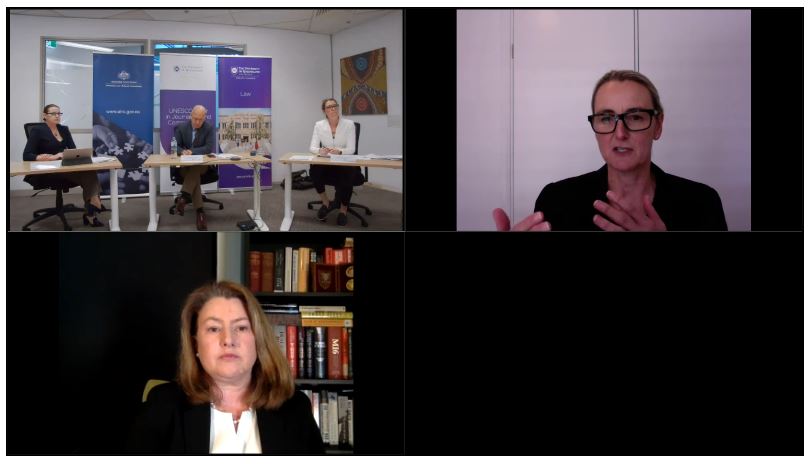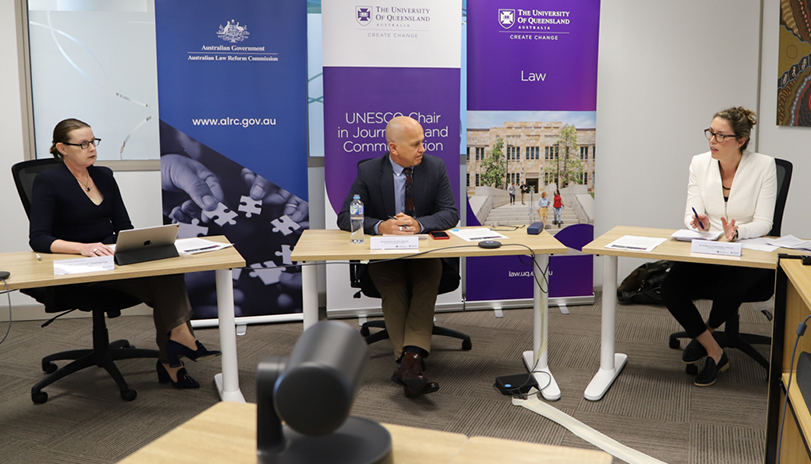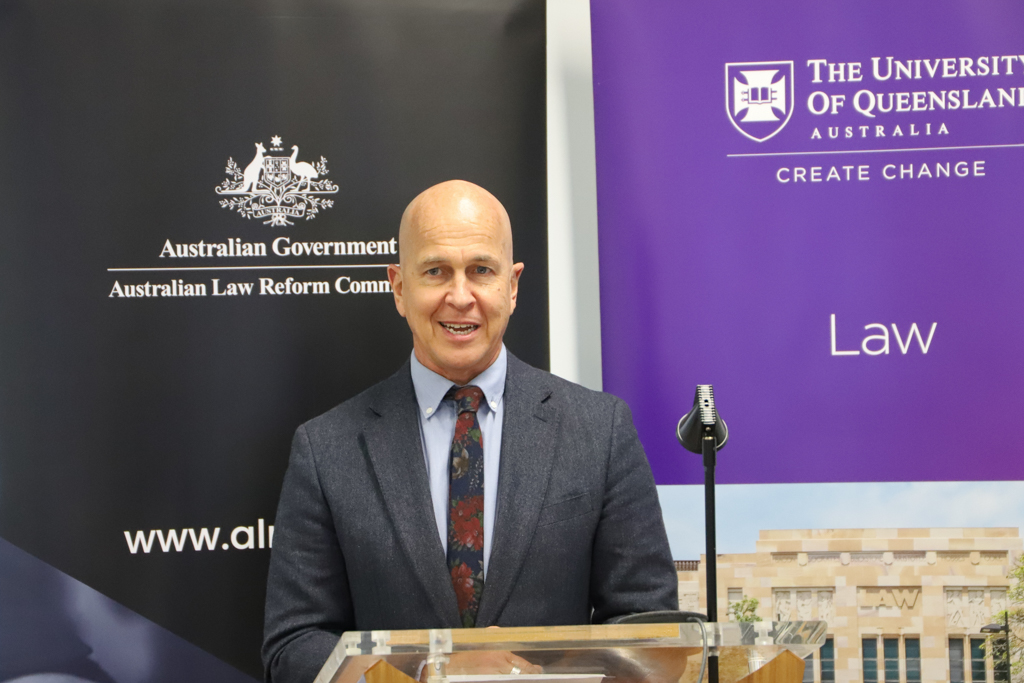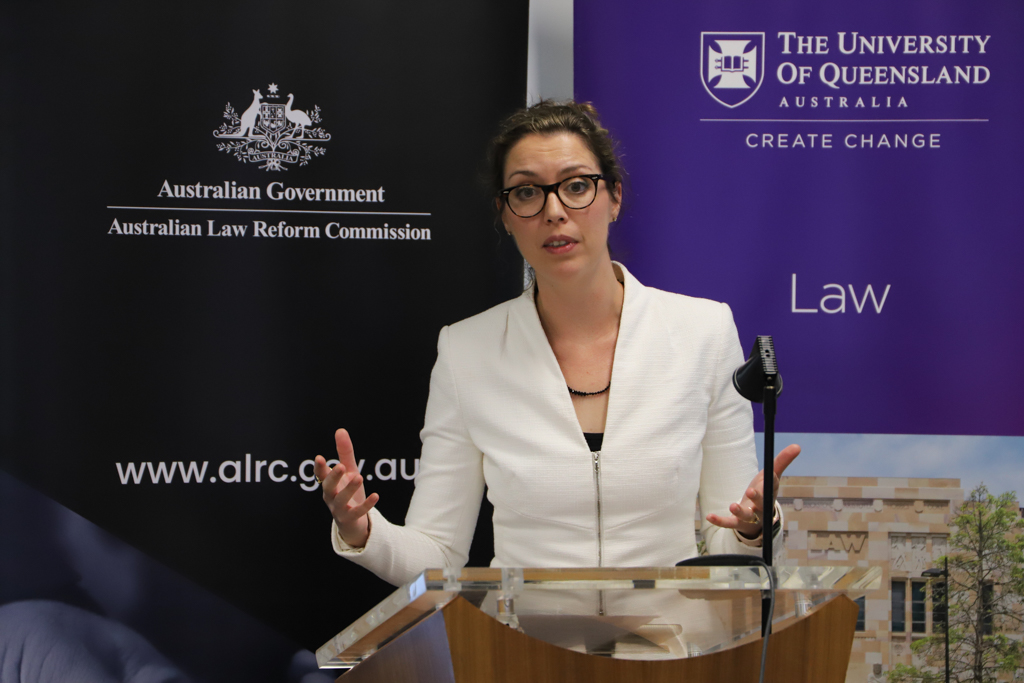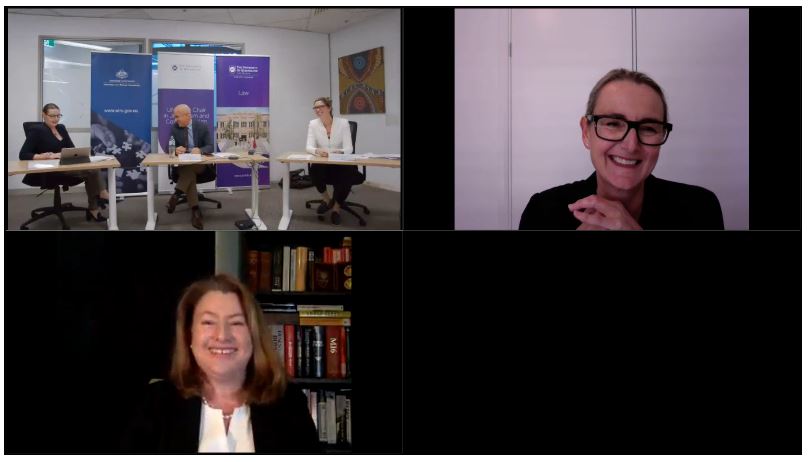01.09.2020
On Monday 24 August 2020 the Australian Law Reform Commission co-hosted with the University of Queensland a webinar with a panel of experts discussing the potential for a future ALRC inquiry into press freedom. Wolters Kluwer CCH Learning facilitated the live streaming, enabling a nationwide, interactive conversation. This was the fourth and final webinar in a series examining suggested inquiry topics contained in the ALRC’s “Future of Law Reform” report.
A multiple-choice question posed at the start of proceedings indicated that more or less equal numbers of participants felt that law reform is required in relation to each of: changing understandings of “media”, “the press”, and “journalism”; powers of national security agencies; and the confidentiality of journalists’ sources and data.
Professor Patrick Parkinson AM, Academic Dean and Head of the Law School at the University of Queensland, gave a formal welcome, and observed that the ALRC is well placed to examine the complex issues that arise when considering press freedom in the internet age, and in balancing press freedom with national security requirements.
Justice Sarah Derrington, President of the Australian Law Reform Commission, noted that the webinar would focus on press freedom more than public sector whistleblower protections, although both topics were considered together in the Future of Law Reform report, and both remain areas of active interest for the ALRC.
Professor Peter Greste, speaking on behalf of the Alliance for Journalists’ Freedom, highlighted long-standing concerns the Alliance has held for press freedom in Australia, well before the Australian Federal Police raids in June 2019. He acknowledged that some aspects of government legitimately require secrecy, but also emphasised the importance of media being able to hold government to account. He urged the adoption of a Media Freedom Act to ensure that national security agencies and courts, amongst others, consider the effects of their decisions and actions on press freedom.
Jacinta Carroll, from the Australian National University, strongly supported an ALRC inquiry on this topic. She preferred to speak about the “interplay” of security and press freedom, rather than the “balance”, to emphasise that these matters are dynamic, and also interact with other factors such as politics and international relations. She outlined why security classifications are sometimes necessary, noting that Australia (and other democracies) has had secrecy provisions for decades. She emphasised that a number of scrutiny mechanisms are in place, and posed the key question as how to enable people to raise concerns without compromising security. Media is one way to achieve accountability, however does entail risk, particularly given elements of foreign influence on Australian media, and there is no consensus as to who constitutes “the press”.
Georgia-Kate Schubert, from Australia’s Right to Know coalition, suggested that an inquiry into media freedom would provide the ALRC with “acres of paddock to hoe”. She stressed that the media coalition does not seek a broad immunity for journalists from national security laws, and outlined the main changes sought by the coalition in its submission to the Parliamentary Joint Committee on Intelligence and Security. To date the coalition has focused on Commonwealth laws, but state and territory laws are also relevant, and consistency and harmonisation are important. For example, “shield laws” – to protect journalist sources – have only recently been introduced in South Australia, and are yet to be introduced in Queensland.
Dr Rebecca Ananian-Welsh, from the University of Queensland Law School, focused on the need to “decriminalise legitimate good faith public interest journalism” in Australia. She gave examples of criminal offences that can be used against journalists including “receiving stolen goods” for receiving information regarding potential war crimes, and espionage offences for communicating information about Australia’s international affairs. She discussed the possibility of extending shield laws such that they apply in the context of “search and seizure” during an investigation. She suggested the ALRC would be well placed to weigh up the benefits of wide-ranging amendments to disparate statutes, and/or the possibility of a Media Freedom Act as advocated by Professor Greste.
A number of questions from the participants were put to the panel, and discussion points included:
- the possibility of defining “legitimate public interest good faith journalism”, for example by reference to an appropriate journalistic process;
- whether individual journalists should have greater or different rights than media organisations;
- whether media ownership concentration could be influencing citizens’ rights to receive unbiased information;
- whether threats to press freedom, or the decreasing financial viability of traditional press, is more significant in preventing a more diverse media base in Australia;
- the potential benefits and risks involved in privileging any particular media organisation, whether because that organisation agrees to voluntary ethical standards or otherwise;
- the appropriate onus of proof when the matter to be proved is whether a particular person knew a particular piece of information at a particular time;
- the intersection of issues relating to press freedom and open justice, particularly in the context of closed courts adjudicating national security matters;
- whether it is desirable or likely to reform the Australian Constitution or enact a Bill of Rights incorporating press freedom.
Further comments on the need for an inquiry into this topic and other suggested topics closed on 31 August 2020.
View the recording of the Press Freedom webinar
View the recordings from the webinar series:

